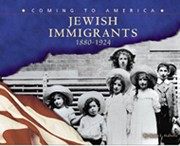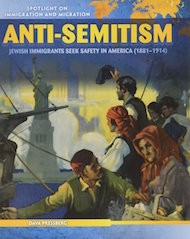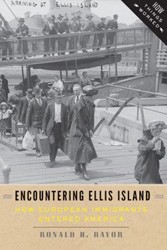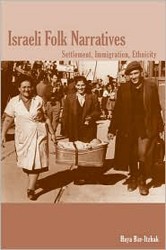This meticulously researched study provides genuine, if unwelcome, news about the situation of Jews entering — or attempting to enter — the U.S. over a forty-year period. It eviscerates the smug stance of the many Jews and other immigrant groups who have delighted in the assumed legality of their people’s immigration into the U.S. Enough crowing about how much better our group was than today’s “illegals” who are infecting our culture; enough self-congratulation. Tens of thousands of Jewish immigrants were illegals.
Professor Garland’s primary interest, however, is not to issue a comeuppance, but rather to trace the reasons for and the effects of U.S. immigration controls. Her main focus through the early chapters is on the immigration laws of 1921 and 1924 that not only limited total immigration but also, more tragically, limited the number of southern and eastern Europeans — and virtually all Asians. The designers of our nation-based quotas blatantly strove to engineer the quality of future U.S. racial and cultural stock.
These laws and others, on both federal and state levels, created a new class of criminal— the illegal alien — as well as new administrative and enforcement agencies. Guess what? The changed immigration situation also attracted the entrepreneurial spirit of those who would help people get around the laws: counterfeiters, smugglers, influence peddlers, disguise artists, safe house suppliers, specialist lawyers (of course), and so forth.
The middle chapters of this book, “Smuggling in Jews” and “Illicit Journeys” are the most colorful, as they are laced with the kind of story telling that animates and details the broad strokes of Garland’s analysis. More of this kind of particularity would be welcome throughout — more of the voices and personalities of those involved.
The 1930s complicated the status of illegal aliens — and perhaps legal ones as well — by introducing a push for registration of aliens. Garland’s readers will not miss the parallels to today’s political battles over documentation and identity cards, between security and personal freedom. As one might expect, “American Jews … were at the forefront of the battle against alien registration throughout the era.”
Too often marred by overlong and convoluted sentences and paragraphs, this study is notable for Garland’s passionate intensity and for her concern with fairness to those on all sides of the issues she explores. The sixty pages of notes are wisely relegated to the end of the book rather than squeezed in along the way. Index, notes.
Related content:
- Statues and Golems by Helene Wecker
- What We Talk About When We Talk About Book Dedications by David Samuel Levinson
- 97 Orchard: An Edible History of Five Immigrant Families in One New York Tenement by Jane Ziegelman
Philip K. Jason is professor emeritus of English at the United States Naval Academy. A former editor of Poet Lore, he is the author or editor of twenty books, including Acts and Shadows: The Vietnam War in American Literary Culture and Don’t Wave Goodbye: The Children’s Flight from Nazi Persecution to American Freedom.





